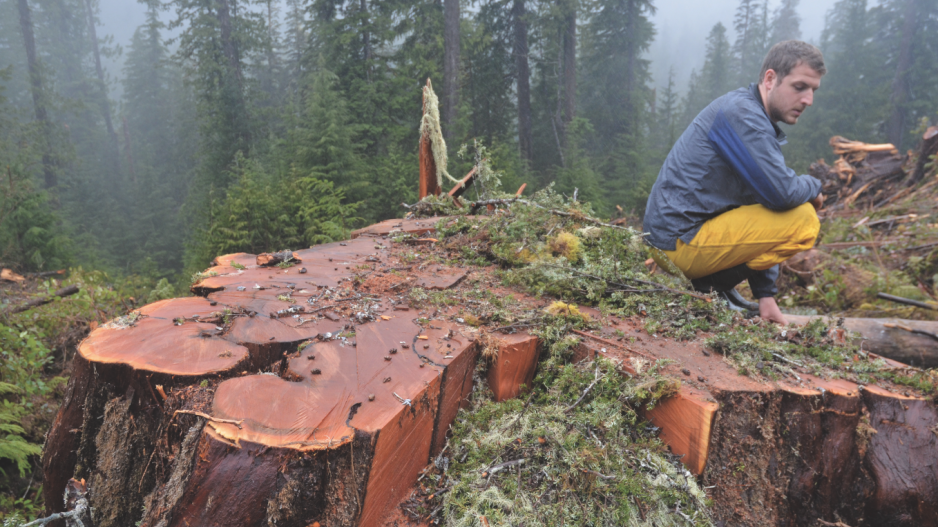A Surrey-based company has been given the go-ahead to start logging a previously untouched piece of Vancouver Island old-growth forest.
The move could spark protests and even a blockade as environmentalists say they’re ready to defend one of the battlegrounds of B.C.’s War in the Woods.
“People are willing to occupy the forest,” said Gwen Barlee, policy director of the Wilderness Committee, one of the groups involved in creating the park.
“The Wilderness Committee doesn’t engage in civil disobedience, but others have said they will.”
In a September 18 news release, Wilderness Committee campaigner Terrance Coste said the group doesn't want the issue to result in a blockade, and called for the provincial government to rescind the permit it granted to Teal-Jones.
In the late’80s and early ’90s, activists fought to protect the old-growth forests of the Carmanah Walbran and Clayoquot Sound, located on the sparsely populated west coast of Vancouver Island. In 1990, the B.C. government protected 16,400 hectares in Carmanah Walbran Provincial Park. In 1993, an agreement was reached to place Clayoquot Sound under a land-use regime that included stricter environmental protections.
In a blog post, Coste called the omission “a grievous error.”
The 500-hectare area in question, which is in the Walbran Valley but outside of the park boundary, has 1,000-year-old trees, Barlee said, and is in a unique karst ecosystem, an area where porous rocks create complex drainage systems.
“We have very little low-elevation old growth left,” she said.
A rigorous public process to create the park was held 25 years ago. That process does not need to be revisited, said Hanif Karmally, CFO of Teal-Jones, the company that holds the tree farm licence in the area.
Before 2004, TimberWest owned the licence, but the area has never been logged. Karmally said the area would be logged selectively, not clear cut.
NDP MLA Bill Routley, who was involved with the land-use talks in the early 1990s, also thinks that history doesn’t need to be repeated. Although he recalls environmental groups not getting everything they were asking for, “a lot of what they wanted was achieved.”
Barlee and Routley say public trust in how well the forest is being managed has been eroded, thanks to the BC Liberal government’s changes to the Forest Act in 2002. The changes gave forest companies the responsibility for land-use planning.
In a recent report, B.C.’s Forest Practices Board criticized the way the system is working. It said objectives are often too vague and companies don’t communicate well enough with the public.
The Wilderness Committee and Teal-Jones have been speaking to each other about the issue, but haven’t made any progress.
Karmally is adamant that his company needs to log the old-growth forest, saying it’s a matter of economics. With lumber prices low now, it’s often not profitable to harvest smaller trees. Companies can make the numbers work if they take old growth along with second-growth trees.

A worker at Teal-Jones' sawmill in Surrey. The company says it must log old growth trees to remain economically viable | Richard Lam
Western red cedar is relatively rare. It’s found only in British Columbia and the northwest United States and fetches a high price for siding and roof shingles for expensive homes. That demand, Karmally said, comes mostly from the United States.
B.C.’s forestry industry is currently suffering through a downturn: the price of lumber has plunged, in part because of declining demand from China and lower-priced wood produced in the United States and elsewhere.
Karmally pointed out that his company doesn’t export raw logs but operates a sawmill in Surrey that employs 500 people. He said logging would begin shortly after receiving approval from the province.
Barlee views that possibility with dismay.
"You have an ecosystem hanging on by a thread," she said.
@jenstden




